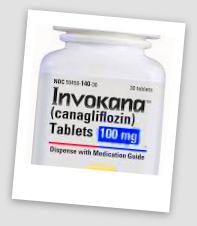Ricky Bowling, from Kentucky recently filed an Invokana lawsuit, claiming Invokana caused him to suffer damages from its use.

Invokana, is a popular newer drug used to treat type 2 diabetes. According to Bowling, he developed Invokana ketoacidosis side effects shortly after he used the new-generation diabetic medication.
Bowling filed his Invokana lawsuit in the U.S. District Court for the District of New Jersey, against Invokana’s manufacturers; Johnson & Johnson, it’s Janssen subsidiary, and Mitsubishi Tanabe Pharma Corp.
Bowling alleges that he suffered serious complications from a build up of acid ketones in the blood, known as diabetic ketoacidosis.
According to Bowling’s Invokana lawsuit, the medicine’s manufacturers failed to research Invokana’s side effects or warn patients and doctors about the increased risk of diabetic ketoacidosis.
What is Diabetic Ketoacidosis (DKA)?
DKA develops when your body can’t produce enough insulin. Insulin has a key role in helping sugar or glucose, a major source of energy for muscles and other tissues enter cells. Without enough insulin, the body begins to break down fat as fuel. This process leads to a buildup of acids in the bloodstream called ketones, eventually leading to diabetic ketoacidosis if untreated.
Usually when a patient develops diabetic ketoacidosis complications, they have to be hospitalized for treatments involving intravenous fluids and insulin. In severe cases, DKA can be life threatening and cause wrongful death.
Invokana Ketoacidosis Side Effects
Johnson & Johnson’s Invokana was cleared for sale by the FDA in 2013. The FDA has issued several warning label changes and many injured plaintiffs are filing personal injury and product liability claims for Invokana ketoacidosis side effects.
What is Invokana?
Invokana (canagliflozin) is the first in a new class of diabetes drugs, known as sodium-glucose co-transporter 2 (SGLT2) inhibitors.
Invokana Ketoacidosis Risks
The FDA has received many Invokana related adverse event reports. In May 2015, the FDA investigated the link between Invokana and ketoacidosis after discovering many reports of ketoacidosis.
Ketoacidosis complications are not unique to Invokana, other SGLT2 inhibitors including Invokamet, Farxiga, Xigduo XR, Jardiance and Glyxambi are also plagued with similar side effects.
The FDA ordered Johnson & Johnson to add new Invokana warnings about ketoacidosis in December 2015, stressing that patients stop taking the medication and seek medical attention if they experience abdominal pain, fatigue, nausea, respiratory problems or vomiting ketoacidosis symptoms.
The FDA also noted that there are other severe adverse event reports involving Invokana, with kidney failure, kidney stones, urinary infections and kidney damage which may be permanent.
Hospitalized by Invokana side effects, kidney damage, kidney failure and other injuries? Call us today for help.






